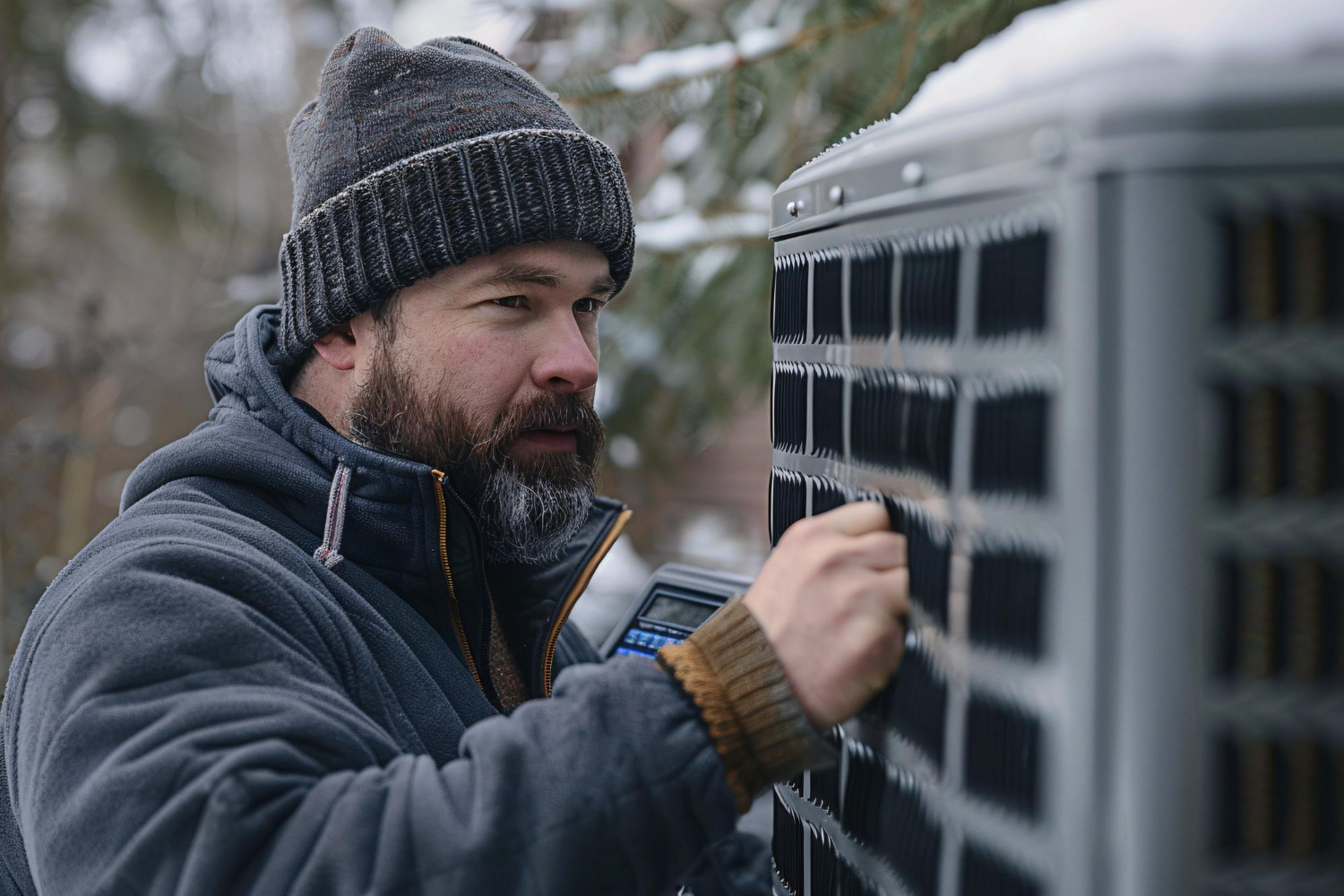Proper HVAC maintenance is critical to keeping your home comfortable all year round. Regularly maintaining your HVAC system helps enhance its efficiency, prolong its lifespan, and reduce the chances of unexpected breakdowns. A well-maintained system means better air quality, consistent temperature control, and lower energy bills.
Importance of Regular HVAC Maintenance
Regular HVAC maintenance is vital for ensuring your system runs efficiently and effectively. Without proper care, the system’s performance can degrade over time, leading to higher energy bills and potential system failures. Regular maintenance helps you catch minor issues before they become significant problems, saving you from costly repairs in the future.
A well-maintained HVAC system provides consistent and comfortable temperatures throughout your home. It also improves indoor air quality by keeping filters clean and airflow unobstructed. By maintaining your HVAC system, you ensure that it runs at optimal efficiency, reducing the workload on the unit and prolonging its lifespan.
Neglecting maintenance can result in the accumulation of dust and debris, which can cause the system to overheat and fail. Regular maintenance includes cleaning, inspection, and lubrication of parts to keep everything running smoothly. Investing a little time and effort in routine maintenance can lead to significant savings and a more comfortable living environment.
Essential DIY HVAC Maintenance Tips
Homeowners can perform several DIY tasks to maintain their HVAC systems and ensure peak performance. Here are some essential tips:
1. Replace Air Filters: Dirty air filters can block airflow and reduce efficiency. Replace them every 1-2 months to keep your system running smoothly.
2. Clean the Area Around the HVAC Unit: Keep the space around your unit clear of debris and clutter. This helps maintain good airflow and reduces the chance of damage.
3. Check Thermostat Settings: Ensure your thermostat is set correctly and test it for accuracy. Proper settings help maintain consistent temperatures and reduce the system’s strain.
4. Inspect and Clean Vents: Make sure vents are open and unobstructed. Clean them regularly to prevent dust buildup, which can hinder airflow and degrade air quality.
5. Listen for Unusual Noises: Strange sounds can indicate mechanical problems. If you hear any, it may be time to call in our professionals.
By following these simple maintenance tips, you can enhance your HVAC system’s efficiency and reliability. These easy tasks help prevent larger issues and ensure that your home remains comfortable throughout the year.
Common HVAC Issues and How to Prevent Them
HVAC systems can encounter various issues that affect performance and efficiency. Recognizing these common problems and knowing how to prevent them can help keep your system running smoothly.
1. Clogged Filters: Dirty filters can restrict airflow, causing your HVAC system to work harder. Prevent this by replacing filters every 1-2 months. Clean filters ensure better airflow and reduce strain on the system.
2. Refrigerant Leaks: Low refrigerant levels can cause your system to lose cooling capacity. Regular inspections can catch leaks early and prevent more significant problems. Our professionals can check for and repair leaks during routine maintenance.
3. Faulty Thermostats: Inaccurate or malfunctioning thermostats can lead to inconsistent temperatures. Ensure your thermostat is working correctly and consider upgrading to a programmable or smart thermostat for better control.
4. Blocked Vents and Ductwork: Debris and dust can accumulate in vents and ducts, causing blockages. Regular cleaning of vents and professional duct cleaning can maintain good airflow and air quality.
5. Wear and Tear on Parts: Over time, components like belts and motors can wear out. Schedule regular maintenance to inspect and replace worn parts before they fail.
By addressing these common issues proactively, you can ensure your HVAC system operates efficiently and avoid costly repairs.
When to Schedule Professional HVAC Maintenance
While DIY maintenance is essential, there are times when professional help is necessary. Recognizing when to call our professionals can save you time and prevent further damage to your HVAC system.
1. Seasonal Tune-Ups: Schedule professional maintenance at least twice a year, ideally in spring and fall. This prepares your system for peak heating and cooling seasons and identifies any potential issues.
2. Persistent Issues: If you notice recurring problems that DIY efforts can’t fix, it’s time to call our technicians. Persistent issues like unusual noises, inconsistent temperatures, or frequent cycling require expert diagnosis and repair.
3. Inefficiency: If your energy bills are rising and your system seems less efficient, our professionals can perform a thorough inspection. They can detect and resolve issues affecting efficiency.
4. System Age: Older systems require more frequent check-ups. If your HVAC unit is over 10-15 years old, consider scheduling more regular inspections to ensure it remains in good working condition.
Professional maintenance ensures your HVAC system operates at its best and can extend its lifespan, saving you money and improving home comfort.
Conclusion
Proper HVAC maintenance is essential for optimizing the performance and longevity of your system. By understanding the importance of regular maintenance and implementing simple DIY tasks, you can prevent common issues and keep your HVAC unit running efficiently. Knowing when to seek professional help is also crucial in addressing more significant problems and ensuring your system operates smoothly.
Routine maintenance not only enhances the comfort of your home but also helps you avoid unexpected and costly repairs. Investing time and effort in maintaining your HVAC system pays off in terms of energy efficiency and overall reliability.
For comprehensive HVAC maintenance in Fort Myers, FL, trust the experts at Island Aire Of Southwest Florida Inc. Contact us today to schedule an inspection and keep your HVAC system in top condition all year round.






